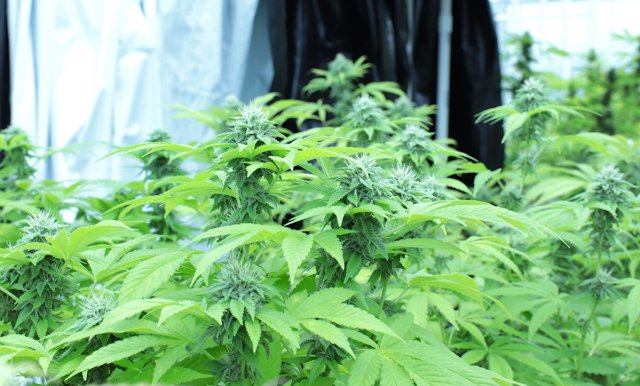
Oklahoma voters will go to the polls in a March 7, 2023, special election to decide the fate of State Question 820, which would legalize marijuana for recreational use and expunge past marijuana convictions for some people.
The election date was established by Gov. Kevin Stitt today in an executive proclamation. Had the governor not called for SQ 820 to be placed on a special statewide ballot in 2023, it would have appeared on a 2024 ballot.
“Oklahoma election officials will be prepared to conduct this special statewide election on March 7,” said Misha Mohr, the State Election Board’s public information officer. “The State Election Board received funding for two statewide elections this fiscal year. The addition of a third statewide election in Fiscal Year 2023 will require supplemental funding, which the Secretary is preparing to request.”
Mohr said the preliminary cost estimate for the March 7 special election is about $1.25 million.
The March 7, 2023, special election will be the culmination of a long journey for SQ 820 backers, who hoped to have the question go to voters in next month’s general election. Organizers submitted 164,000 signatures to the Secretary of State on July 5, nearly a month before the deadline. But delays in verifying new signatures — the first time a new state process had been implemented — took almost seven weeks to complete.
“After all the delays caused by the new signature count process, we are excited to finally be on the ballot on March 7, 2023, so that Oklahomans can experience the benefits of the state question without further delay,” SQ 820 campaign director Michelle Tilley said in a statement. “We are grateful the voices of over 164,000 Oklahomans who signed the petition and want to vote on legalizing recreational marijuana for adults in Oklahoma have been heard.”
Organizers went to court to attempt to ensure the question made this November’s general election ballot, but they ultimately lost that fight in an unanimous ruling by the Oklahoma Supreme Court on Sept. 21.
“Petitioners have no clear legal right and respondents have no plain legal duty to put SQ 820 on the November 8, 2022 general election ballot unless it is in full compliance with 34.O.S.2021 §§ 8 and 12 (the state statutes governing initiative petitions),” Justice Douglas Combs wrote in the court’s majority opinion.
On Tuesday, Stitt also appointed Adria Berry to be the executive director of the Oklahoma Medical Marijuana Authority, which is set to become an independent state agency Nov. 1. In its early years, the OMMA has been part of the Oklahoma State Department of Health, and Berry became the OMMA’s fourth executive director in 2021.
“I am honored by this appointment and it is an incredible privilege to serve my home state in this capacity,” Berry said in Stitt’s press release Tuesday. “Building up OMMA as a gold standard state agency that prioritizes consumer protection, equitable enforcement and quality service is both uniquely challenging and professionally rewarding. I am honored to lead this effort and will work tirelessly to execute OMMA’s mission to ensure there are no cracks in our state’s medical marijuana industry for criminals and bad actors.”
SQ 820 details
If approved by voters, SQ 820 would allow adults 21 and up to legally purchase marijuana from dispensaries without a medical license, but it would not alter the state’s current medical marijuana program. Recreational sales would also be regulated by the Oklahoma Medical Marijuana Authority.
SQ 820 would also impose a 15 percent tax on purchases, which would fund the OMMA in part. Schools, the court system and drug addiction treatment programs would also share in the tax revenue. Those who hold medical marijuana licenses would not be subject to that tax.
SQ 820 would also provide judicial relief for those who have faced marijuana-related charges and sentences in the past through “modification, reversal, re-designation, or expungement of certain prior marijuana related judgments and sentences.”





















